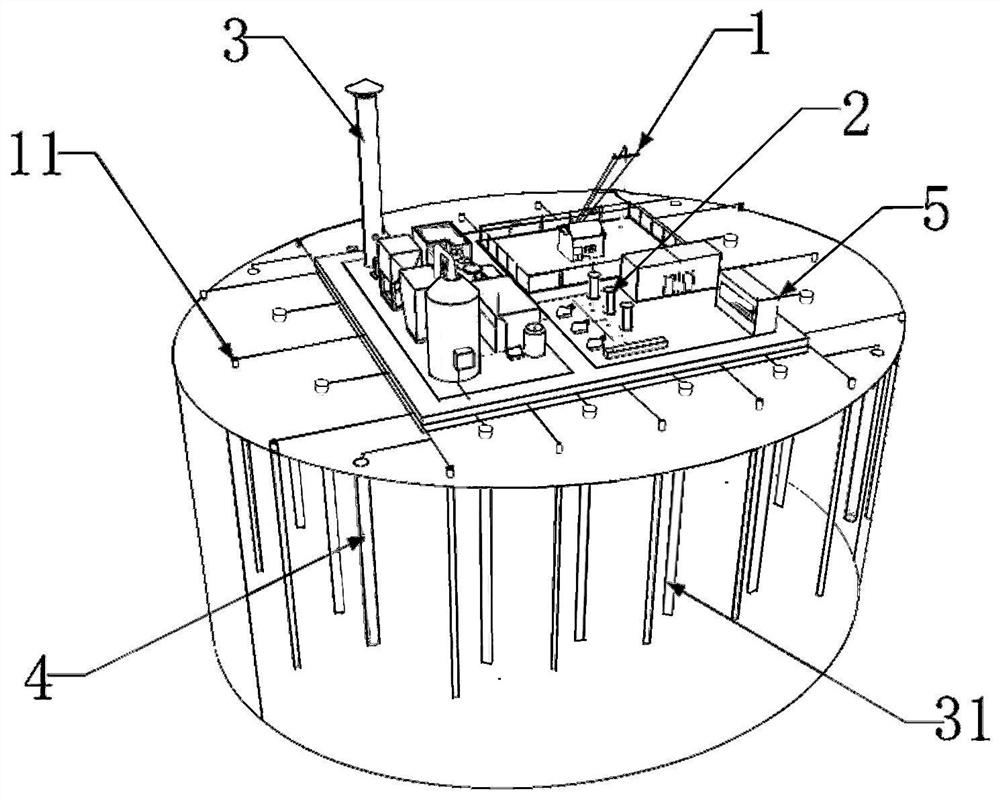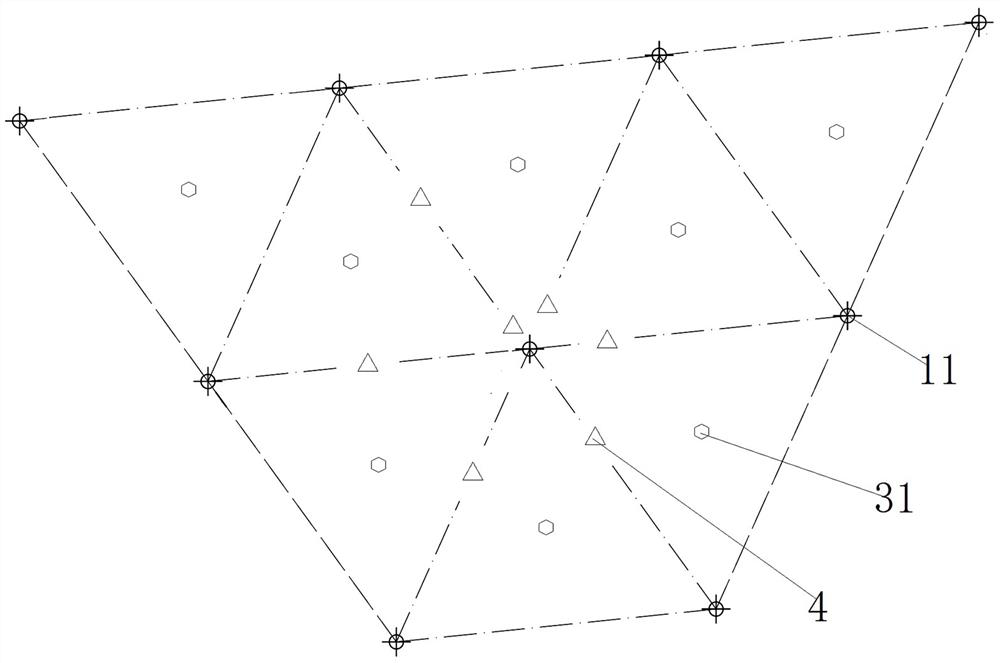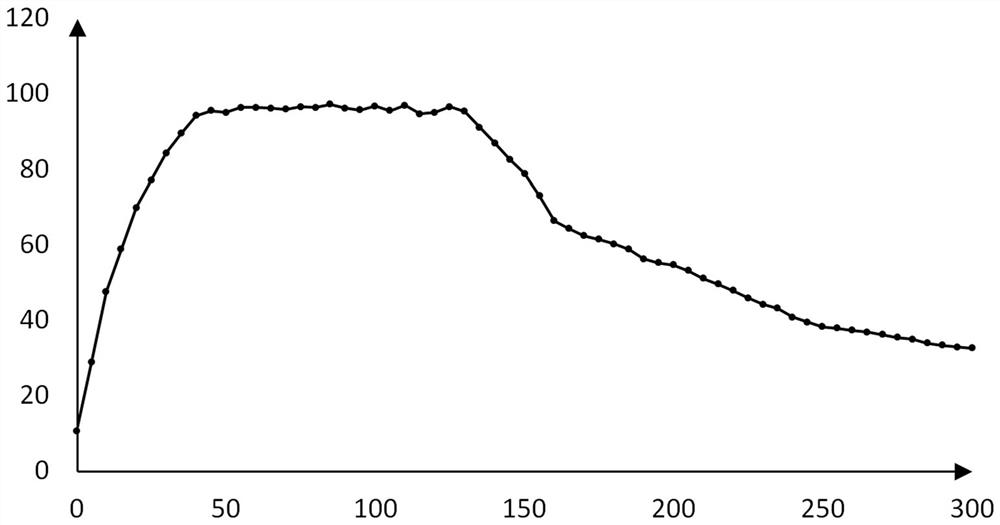Low-energy-consumption soil organic pollutant in-situ treatment method and system
A technology for in-situ treatment of organic pollutants, applied in the restoration of contaminated soil, etc., can solve problems such as energy waste and poor efficiency, and achieve the effects of avoiding waste of energy, reducing the burden of treatment, and enhancing the treatment effect
- Summary
- Abstract
- Description
- Claims
- Application Information
AI Technical Summary
Problems solved by technology
Method used
Image
Examples
Embodiment 1
[0058] Organophosphorus pesticide (cas number 13074-13-0) contaminated site remediation in situ. Heating area heating and cooling process monitoring such as image 3 shown. After heating up for 45 days, reach the target temperature of 95°C, then inject lye to hydrolyze organophosphorus pesticides into various small molecular substances such as phosphate, nitrite, sulfide, methanol, and small molecule polyphenols, and keep warm for 3 months . Such as Figure 4 , during the extraction process, the underground pollutants were quickly extracted, and the concentration of pollutants in the tail liquid first increased to a peak of 10963.4ppb due to heating and released from soil particles, and then dropped rapidly, and decreased to 722.4 on the 135th day after the end of the extraction. ppb. After the heating is stopped, the temperature begins to drop slowly, and when the temperature of the heating area drops to 75°C, the oxidant fluid is injected to start the thermally enhanced ...
PUM
 Login to View More
Login to View More Abstract
Description
Claims
Application Information
 Login to View More
Login to View More - R&D Engineer
- R&D Manager
- IP Professional
- Industry Leading Data Capabilities
- Powerful AI technology
- Patent DNA Extraction
Browse by: Latest US Patents, China's latest patents, Technical Efficacy Thesaurus, Application Domain, Technology Topic, Popular Technical Reports.
© 2024 PatSnap. All rights reserved.Legal|Privacy policy|Modern Slavery Act Transparency Statement|Sitemap|About US| Contact US: help@patsnap.com










